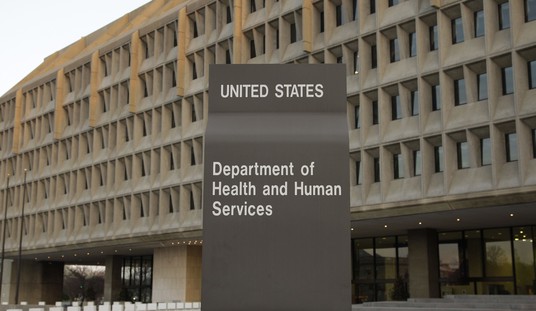Just when you thought the 2016 election was over, they pull you back in. Or rather, they want to kick you back out. Democrats in North Carolina have begun calling for Governor Pat McCrory to concede his re-election bid against Roy Cooper after coming up 6,500 votes short — and having several recount and challenge bids denied. Thus far, McCrory’s not playing along:
McCrory’s challenger Democrat state Attorney General Roy Cooper has said repeatedly that he won the race and received big support from Democratic lawmakers who believe there’s no way McCrory can win.
“By any definition, Roy Cooper has won this election,” U.S. Rep. G.K. Butterfield, D-N.C., told reporters in Raleigh, adding that McCrory “is continuing to show his defiance and his stubbornness that he has shown the world over the last four years.”
Cooper said in a statement that “it would be irresponsible to wait any longer to tackle the issues we campaigned on across the state.” He also brought online a website for people interested in working for his administration.
The latest results from the State Board of Elections late Monday put Cooper ahead of McCrory by about 6,500 votes from nearly 4.7 million cast. That is up from about 5,000 votes on election night two weeks ago. Cooper claims the margin is wider and will be reflected as counties complete their formal tabulating. More than 20 of the 100 counties had performed their canvassing by Monday evening, state board data show.
Politico reports that McCrory intends on challenging the results both more broadly and specifically. His campaign alleges widespread voter fraud, enough to have tilted the race against the incumbent:
North Carolina GOP Gov. Pat McCrory, who signed a 2013 voter-ID law which a federal court rolled back this year for illegally suppressing African-American votes, is now claiming that massive voter fraud in his state swung the 2016 election against him, as McCrory’s campaign continues to challenge Democrat Roy Cooper’s thin lead two weeks after Election Day.
The contentious, bitter race between McCrory and Cooper, the state attorney general, is the closest governor’s race in the country in a dozen years — and it’s not officially over. Cooper, the state attorney general, has extended his lead to 7,902 votes during an ongoing canvass of absentee and provisional ballots, his campaign says. (The State Board of Elections, which updates less frequently, shows Cooper leading by 6,703 votes.) And on Monday, Cooper announced a transition team to prepare to take the reins of state government despite McCrory’s intense push to dispute the results.
But McCrory still hasn’t conceded, alleging voter fraud in 50 of North Carolina’s 100 counties and contesting individual votes before dozens of local election boards, claiming that dead people, felons and people who voted in other states cast ballots in the race. On Sunday, the McCrory campaign emailed supporters, saying the “election is still in overtime,” and soliciting contributions for its legal fund.
The ballots have all been counted, but the canvassing has yet to be completed. McCrory attempted to get the State Board of Elections to consolidate all of the complaints, but they rejected that in favor of having the process remain in the counties for now. That didn’t work out well in Dunham County, a Democratic Party stronghold, where McCrory’s team alleged that voting machines had “corrupted” the tally of as many as 95,000 votes. Those ended up being hand-counted on Election Night because of the problems with the machines in those precincts — one reason Dunham County results came in so late. The county board rejected the challenge, noting that hand counting is a normal option in these cases.
This will likely come down to a recount, which McCrory can get — as long as the gap remains below 10,000, according to Politico. That will extend this race another few weeks (and also the state auditor race, which is running even tighter), but unless McCrory can find significant numbers of ballots to exclude, it probably won’t work. Recounts can change the results of elections where the gap is in the hundreds — just ask us in Minnesota — but 6,500 votes is a much different kind of gap to overcome. His best bet is with the challenges to the ballots, and so far even the Republican-controlled county election boards aren’t giving him much reason for hope.








Join the conversation as a VIP Member